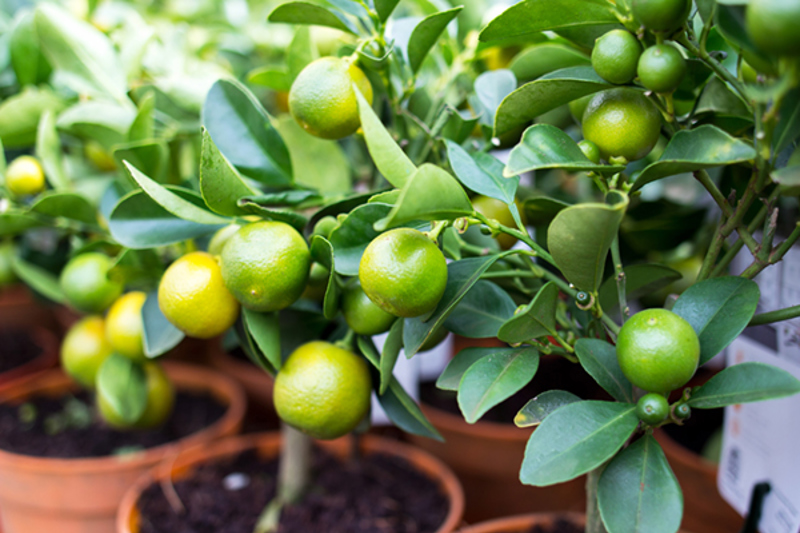Yates Account
Join now
Create a Yates account today!
Sign up to join the Yates Garden Club for monthly e-mails packed with seasonal inspiration, tips for success & exclusive promotions.
Plus if you’re a Garden Club member you can take part in the Yates Growing Community - a blog to share successes, get advice & win prizes in fun challenges along the way!

Forgot password
Enter the email address associated with your account, and we'll email you a new password.

Late Summer Citrus Care
For established citrus, it’s important to keep deep watering and feeding during late summer, as autumn and winter fruit are continuing to develop. Citrus are gross feeders, so they're especially hungry while fruit is developing.
Moisture and nutrient stress can upset the quantity and quality of the harvest, so it’s well worth giving extra care to your citrus at this time of year. Feeding is as simple as diluting 2 capfuls of Yates Thrive Citrus Liquid Plant Food into a 9 L watering can and applying over the root zone each week.
Mulch around the base of the tree with organic mulch like woodchip or pea straw (being careful not to let the mulch touch the trunk; always leave a gap around it).
Whenever citrus leaves are looking a little yellow or sad, you can give them a pick-me-up of micronutrients. Yates Health Tonic Trace Element Chelates delivers a wide range of micronutrients in small doses, so it's ideal to use when the exact deficiency isn't obvious or can't be diagnosed.
It's also a great time to start feeding with our potassium-rich secret ingredient: Yates Liquid Potash. If you're not using a specific citrus fertiliser, adding small but regular doses of Liquid Potash into your feeding schedule will result in bigger, tastier, juicier fruit at harvest time.
Sweet sugary sap that’s flowing through citrus plants is a magnet for sap sucking pests like scale. Scale insects can be brown, white, pink or grey and appear as small raised bumps along leaves and stems.
Sometimes the scale are hard to spot, but if you see sooty mould developing on the leaves (a black ashy-looking film) or ants moving up and down the stems then they’re indicators of sap sucking insect pests like scale, or aphids.
Regular sprays of Yates Natures Way Organic Citrus, Vegie Ornamental Spray, on both the upper and lower leaf surfaces, will help keep scale under control.
It’s based on natural pyrethrin and vegetable oil and is certified for use in organic gardening, so is ideal for gardeners wanting to use organic methods of insect pest control.

Harvest Time for Melons
Delicious rockmelon sown back in spring will soon be ready to pick. It’s time to harvest when the stem begins to break away from the fruit.
You might be desperate to taste your beautiful home-grown melons; but the best flavour will develop if you leave the fruit to mature for a few days after picking it.
If your rockmelons aren't quite mature, continue to keep the soil moist and feed each week with a fast acting fertiliser like Yates Thrive Flower Fruit Soluble Plant Food., a complete plant food that’s rich in potassium and phosphorus to promote fruit development.
Keep watch for downy mildew and leaf spot diseases on rockmelon leaves. When watering, gently water the soil at the base of the plant rather than the leaves, which can help reduce the spread of disease spores. Apply Yates Natures Way Fungus Spray if you need to keep diseases under control.

Lisbon Lemons - Tart Tasting Treats
Lisbon lemons (Citrus limon ‘Lisbon’) are thought to have originated in Portugal. They're large, cold-hardy, and heat tolerant trees that produce heavy winter and spring crops. The thin skinned, juicy fruit are highly acidic. Lisbon is one of the most commonly grown varieties around the world.
Being a sizeable tree (growing up to 8m tall and 4m wide) Lisbon is an ideal citrus for a large backyard. For smaller gardens, look out for dwarf grafted Lisbons, which reach a more manageable 3m and can be grown in a medium to large pot, on a sunny balcony or deck.
When planting a new Lisbon lemon out in the garden, choose a spot with well-drained soil that receives at least 6 hours of sunshine a day. Enrich the soil in the planting hole first with some Yates Dynamic Lifter Organic Plant Food.
Dynamic Lifter helps increase soil organic matter content and water holding capacity, in addition to providing the new tree with gentle slow release organic nutrients, as it establishes.
For potted citrus, choose a pot with good drainage holes and fill it with a good quality potting mix like Yates Premium Potting Mix. Keep new citrus trees well-watered, as they settle into their new home.
















Share
Share this article on social media